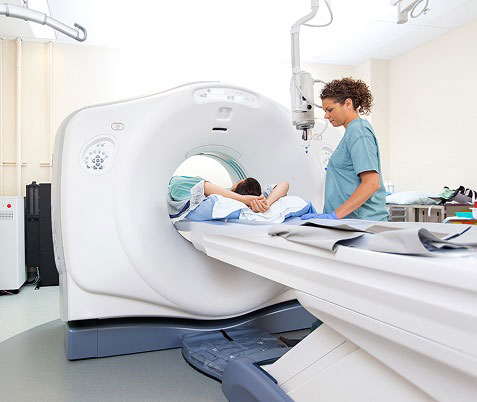Medical billing involves submitting and following up on insurance claims to secure payment for medical services. Billers interpret codes from medical coders to ensure providers are reimbursed. Their duties include charge entry, payment posting, insurance and patient follow-ups, and claims transmission. Billers need knowledge of procedural and medical terminology, anatomy, and billing practices to ensure accurate coding and proper payment.
Medical billing and coding professionals typically work full-time in healthcare settings like hospitals, clinics, and insurance companies, with some remote opportunities available. Employers often prefer certified professionals as certification, such as CPC or CCA, can boost earning potential. Training programs cover topics like the international classification of diseases, procedural coding systems, anatomy, and physiology, preparing students for success in the field.
Exploring a Career in Medical Billing and Coding
Medical billing and coding offers a rewarding career path in healthcare. You’ll play a crucial role in processing patient data and ensuring proper reimbursement for medical services.
Defining the Roles
As a medical coder, you’ll translate medical diagnoses, procedures, and equipment into standardized codes. These codes are essential for accurate billing and record-keeping. Medical billers, on the other hand, use these codes to create and submit claims to insurance companies.
Your responsibilities may include:
- Reviewing patient records
- Assigning appropriate codes
- Preparing insurance claims
- Communicating with healthcare providers and insurance companies
Both roles require attention to detail, strong analytical skills, and knowledge of medical terminology. You’ll need to stay updated on coding guidelines and insurance regulations.
Education and Certification Requirements
To start your career, you’ll need proper education and certification. Most employers prefer candidates with formal training in medical billing and coding.
You can choose from:
- Certificate programs (6-12 months)
- Associate degree programs (2 years)
- Bachelor’s degree programs (4 years)
Certification is crucial for career advancement. Popular certifications include:
- Certified Professional Coder (CPC)
- Certified Coding Specialist (CCS)
- Certified Medical Biller (CMB)
These credentials demonstrate your expertise and can lead to better job opportunities and higher salaries.
Understanding the Healthcare Industry
As a medical biller or coder, you’ll need a solid grasp of the healthcare industry. This includes knowledge of:
- Medical Terminology
- Anatomy and Physiology
- Healthcare Regulations (e.g., HIPAA)
- Insurance Policies and Procedures
You’ll work with various healthcare providers, from small clinics to large hospitals. Understanding different healthcare settings will help you adapt to diverse work environments. Staying informed about industry trends is crucial. Healthcare regulations and coding standards evolve, so continuous learning is essential for success in this field.
Skills and Knowledge Foundation
Building a strong foundation in medical billing and coding requires a combination of technical knowledge and personal attributes. Mastering key skills and understanding core medical concepts are essential for success in this field.
Core Medical Knowledge
Medical terminology forms the basis of your expertise in this field. You’ll need a solid grasp of anatomical terms, disease processes, and treatment procedures. Understanding human anatomy and physiology helps you accurately interpret medical records and assign appropriate codes.
Pathophysiology knowledge allows you to comprehend disease processes and their impact on the body. This understanding is vital for selecting the correct diagnostic and procedure codes. Familiarity with pharmacology basics helps you code medication-related services correctly. You should be able to recognize common drug names, classes, and their uses.
Essential Coding Skills
Proficiency in medical coding systems like ICD-10, CPT, and HCPCS is fundamental. You must be able to navigate these complex systems efficiently and accurately. Knowledge of insurance claims processing is also critical. Understanding how different payers handle claims helps you submit accurate bills and resolve issues promptly.
Attention to detail is paramount in coding. A single digit error can lead to claim denials or improper reimbursement. Staying current with coding updates and healthcare regulations is essential. The field evolves rapidly, and you must adapt to changes quickly.
Proficiency in medical billing software is necessary for efficient work. Familiarize yourself with common programs used in healthcare settings.
Soft Skills for Success
Strong communication skills are vital. You’ll interact with healthcare providers, insurance representatives, and sometimes patients. Time management is also necessary in this fast-paced field. You’ll often juggle multiple tasks and deadlines simultaneously.
Problem-solving abilities can help you tackle coding challenges and resolve claim issues effectively. And ethical behavior is non-negotiable. You must maintain patient confidentiality and adhere to healthcare privacy laws.
Teamwork may be required, depending on your exact role, as you may often collaborate with other healthcare professionals to ensure accurate coding and billing.
Find Online Medical Billing & Coding Programs
| Quick Facts: Medical Records Specialists | |
|---|---|
| 2023 Median Pay ?The wage at which half of the workers in the occupation earned more than that amount and half earned less. Median wage data are from the BLS Occupational Employment and Wage Statistics survey. In May 2023, the median annual wage for all workers was $48,060. | $48,780 per year $23.45 per hour |
| Typical Entry-Level Education ?Typical level of education that most workers need to enter this occupation. | Postsecondary nondegree award |
| Work Experience in a Related Occupation ?Work experience that is commonly considered necessary by employers, or is a commonly accepted substitute for more formal types of training or education. | None |
| On-the-job Training ?Additional training needed (postemployment) to attain competency in the skills needed in this occupation. | None |
| Number of Jobs, 2023 ?The employment, or size, of this occupation in 2023, which is the base year of the 2023-33 employment projections. | 191,500 |
| Job Outlook, 2023-33 ?The projected percent change in employment from 2023 to 2033. The average growth rate for all occupations is 4 percent. | 9% (Much faster than average) |
| Employment Change, 2023-33 ?The projected numeric change in employment from 2023 to 2033. | 16,700 |
Career Pathways and Advancements
Medical billing and coding offers diverse career paths with ample opportunities for growth. As you progress in this field, you’ll find numerous avenues for advancement and professional development.
Job Outlook and Opportunities
The demand for medical billing and coding professionals continues to rise and according to the Bureau of Labor Statistics is predicted to increase by 9% from 2023 to 2033. You can expect a positive job outlook in various healthcare settings. Hospitals, clinics, and insurance companies often seek skilled coders and billers.
You may start as an entry-level coder and advance to specialist roles. Some options include:
- Inpatient Coder
- Outpatient Coder
- Compliance Specialist
- Auditor
Remote work opportunities are increasing. Many coders now work from home, offering flexibility in your career. As you gain experience, you might transition into roles like health information technician or manager. These positions often involve overseeing coding departments or managing health information systems.
Navigating Career Development
To advance your career, focus on continuous learning and skill development. Pursue certifications to enhance your expertise and marketability. Some valuable certifications include:
- Certified Professional Coder (CPC)
- Certified Coding Specialist (CCS)
- Registered Health Information Technician (RHIT)
Set clear career goals and create a plan to achieve them. Consider finding a mentor in the field. They can provide guidance, share experiences, and help you navigate career challenges. Stay updated on industry changes, including new coding systems and healthcare regulations. Attend workshops, webinars, and conferences to expand your knowledge and skills.
The Value of Networking
Building a strong professional network is crucial for career growth in medical billing and coding. Join professional associations like AAPC or AHIMA to connect with peers and industry leaders.
Attend local chapter meetings and industry events. These gatherings offer opportunities to:
- Learn about job openings
- Gain insights into industry trends
- Share experiences with colleagues
Utilize online platforms like LinkedIn to expand your network. Engage in discussions, share relevant content, and connect with professionals in your field. Networking can open doors to new opportunities and provide valuable support throughout your career. It’s an essential tool for staying informed about job prospects and industry developments.
Ethical and Regulatory Considerations
Medical billing and coding professionals must navigate complex legal and ethical landscapes to ensure patient privacy and accurate claims processing. Adherence to stringent standards and guidelines is crucial for maintaining integrity in healthcare documentation and reimbursement.
Legal and Privacy Standards
Patient confidentiality is paramount in medical coding. You must comply with HIPAA regulations to protect sensitive health information. This includes safeguarding electronic health records (EHRs) and ensuring secure transmission of data. Your role involves managing records responsibly. You’ll need to understand privacy laws and implement protocols to prevent unauthorized access to patient information.
Ethical coding practices are essential for fair billing. You must accurately represent medical services provided without upcoding or unbundling. This maintains trust between healthcare providers, patients, and insurance companies.
Understanding the Healthcare Industry
You’ll work with various code sets like CPT, HCPCS, and ICD-10-CM. Staying updated on coding guidelines is crucial for compliance and accurate reimbursement. The medical coding process requires attention to detail and adherence to standardized procedures. You’ll need to interpret medical records correctly and assign appropriate codes for diagnoses, procedures, and equipment.
Compliance with insurance claim requirements is vital. You’ll ensure claims meet payer-specific guidelines to prevent denials and delays in reimbursement. Collaborating with compliance officers helps maintain ethical standards. You’ll participate in regular audits and training to stay current with the industry’s best practices and regulatory changes.



